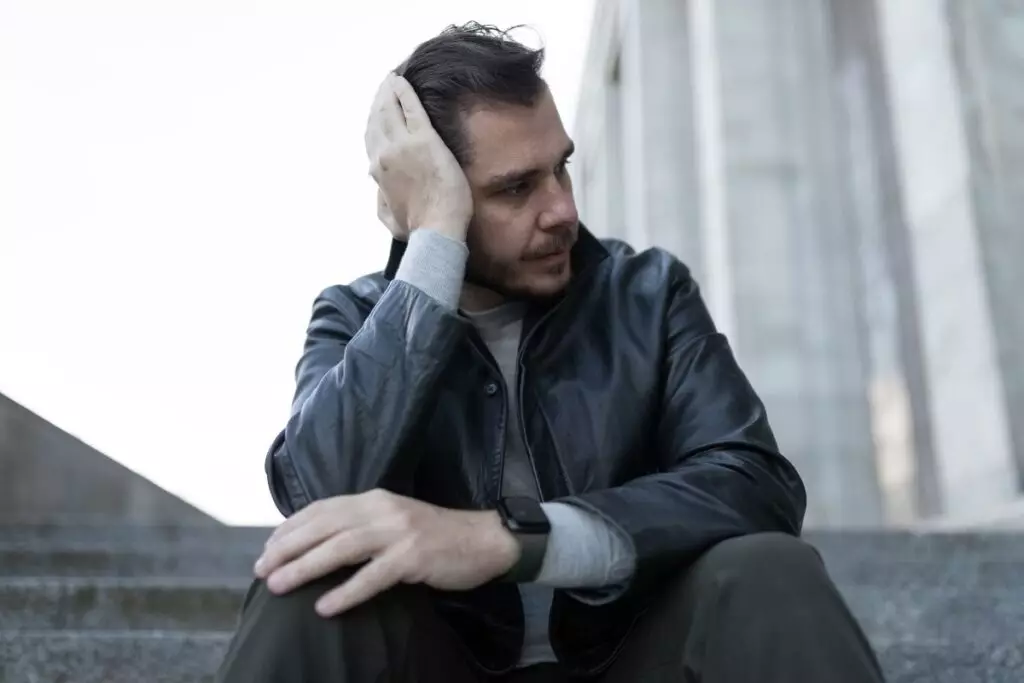Depression Treatment Program


What is Depression?
Depression, also known as major depressive disorder, is a profound feeling of sadness accompanied by a loss of interest in things that previously made one happy. It is an incredibly common, yet serious medical condition that many do not seek help or discuss openly due to the stigma and shame surrounding it.
It can fundamentally change how you think and behave, but it is treatable and beatable. There are a number of treatment methods available to tackle the array of ways in which depression manifests itself in different people, as well as the plethora of symptoms associated with it.
Depression impacts an estimated one in 15 adults, or 6.7%, every year. One in six people, or 16.6%, will encounter depression at some point in their lifetimes. While depression can happen randomly, it usually affects people in their late teenage years or early twenties. On average, women are more likely to experience depression than men are.
The Difference Between Sadness and Depression
Depression should not be confused with the sadness that everyone feels following certain events or experiences, such as the loss of a loved one or the end of a relationship. These are situations that are incredibly difficult to move on from and recover from. However, it eventually becomes easier to deal with those losses.
The grieving process is unique to each and every individual and is influenced by several factors. Soon you may find a new job or enter another relationship after healing from the previous one. But when that sadness does not subside or go away, you are now in a depressed state, and that could have disastrous consequences for your mental and physical health.
On the surface, depression and grief share many similarities. Typically, both involve a withdrawal from active social life and responsibility. But in grief, there are still moments of happiness that are light and positive to counteract the dark periods. With depression, that happiness goes away entirely for at least two weeks and is replaced by persistent sadness, hopelessness, and low self-esteem.
While grieving, you also still maintain your sense of self and identity. Depression, on the other hand, has the potential to wipe away your self-esteem, resulting in feelings of total and complete worthlessness.
Depression can affect any and everyone. Even people who may seem entirely put together on the surface could be hiding their depression deep down. However, with the right treatment and support, anyone can overcome depression. The first step is to seek mental health treatment.
Symptoms of Depression
There are several signs and symptoms of depression that vary in intensity and duration. These include:
- Loss of enjoyment in activities and interests
- Feeling sad or being in a depressed state
- Sleep-related issues like insomnia or oversleeping
- Appetite changes resulting in weight gain or loss
- Difficulty making decisions or maintaining concentration
- Greater feelings of fatigue and weakness
- Loss of energy or increased fatigue
- Sense of worthlessness or low self-esteem
- Slower physical movements
- Thoughts of death or suicide
- Self-harming actions like cutting
To get diagnosed with depression, you need to have symptoms that last for at least two weeks. If you’re having thoughts of hurting yourself or suicide, please reach out for immediate help to keep yourself safe.
It’s also essential to know that some medical issues can have symptoms that look like depression, such as low vitamin levels, tumors, or thyroid problems. To make sure you get the right diagnosis, it’s crucial to see a doctor who can rule out these other possible causes. Your health is important, and a proper evaluation is key to avoid any misunderstandings.

Risk Factors for Depression
Sometimes, people blame themselves for feeling depressed, but it’s important to know that certain factors can contribute to depression, and they’re not your fault. Here are some of the risk factors that may increase the risk of depression:
- Genetics: Depression can run in families. If, for example, one of your close family members has had depression, you might be at a higher risk too.
- Brain Chemistry: Differences in the chemicals in your brain can also play a role in making you more prone to depression.
- Environment: The things happening around you can impact your mental health. Difficult experiences like neglect, abuse, poverty, or violence can increase the chances of developing depression, especially if you went through these things as a child.
- Personality: Certain traits can make you more likely to get depressed. If you often feel like you’re not good enough, have trouble dealing with stress, or tend to be very negative about things, these traits might increase your risk.
If you recognize any of these risk factors in yourself, it’s a good idea to seek help for your mental health sooner rather than la
Depression and Addiction: Understanding Dual Diagnosis
Dual diagnosis occurs when an individual struggles with both a substance use disorder, such as drug or alcohol addiction, and a mental health disorder simultaneously. Often, addiction can lead to depression when it reaches the point of altering brain chemistry and affecting one’s relationships. Conversely, depression can contribute to addiction, as individuals may attempt to self-medicate instead of seeking proper treatment.
Dual diagnosis is a significant issue in the United States. In 2018, the National Survey on Drug Use and Health reported that approximately 9.2 million adults experienced both mental illness and substance use disorder that year. Unfortunately, only 34.5% sought treatment for their mental health, while just 3.9% received treatment for their addiction. A mere 9.1% addressed both conditions simultaneously.
While these statistics may seem discouraging, it is essential to recognize that there are effective treatments available for mental health disorders and addiction individually, as well as comprehensive approaches to addressing both concerns concurrently.
Treatment for Depression
If you or someone you know is struggling with depression, it is important to start the journey to mental health treatment. Depression is not incurable; in fact, many people have successfully recovered from it. Common treatments for depression include:
- Cognitive Behavioral Therapy (CBT): CBT stands out as one of the most effective ways to address depression. It empowers individuals to understand the reasons behind their emotions, recognize unhelpful thought patterns, and equip them with tools to correct these detrimental cycles.
- Medication: Some medications are specifically designed to rebalance the chemicals in the brain that may contribute to depression. Antidepressants, as their name suggests, work by altering the brain’s chemical composition to enhance mood. Typically, patients begin to notice improvements within a couple of weeks, and they can always adjust the dosage or type of medication to achieve the best results.
- Psychotherapy (Talk Therapy): Psychotherapy, often referred to as “talk therapy,” is commonly employed to address forms of depression that can be resolved through an individual’s effort to work through life’s challenges. It can be especially helpful in understanding and addressing childhood trauma or personal difficulties. Speaking with an impartial, qualified professional who listens objectively and offers insights can be a valuable part of the treatment process. Psychotherapy is often used in combination with medication to provide comprehensive care and can be conducted one-on-one, in group settings, or with family members involved.
Additionally, there are several lifestyle changes every individual can do to stop feeling depressed. For example, regular exercise is a proven way to change the chemistry of the body and trigger the release of chemicals that trigger positive emotions. Getting the proper amount of sleep and eating a balanced diet can also help to keep your body and mind at peace. Cutting out people in your life that trigger your depression is another huge way to tackle it. Lastly, reducing habits that make you feel down, such as drinking alcohol or smoking, also helps.
Our Approach to Depression Treatment
At 1st Step, we understand that no two individuals are the same, and neither are their experiences with depression. Our approach begins with a thorough assessment to identify the specific factors contributing to your depression. This allows us to tailor a treatment plan that suits you best.
For those who may benefit from medication, our expert medical team carefully evaluates your needs and closely monitors your progress to ensure that any prescribed medications are optimized for your well-being.
Our dedicated team of mental health professionals is not only highly qualified but also compassionate. We create a safe and welcoming environment where you can openly discuss your concerns and work towards healing.
Recovery from depression is a journey, and we are committed to supporting you every step of the way.
Find Depression Treatment in Pompano Beach, FL Today
Never give up hope for rehabilitation. For more information regarding your addiction and depression treatment options in Florida, please reach out to our team of treatment specialists by dialing or texting (855) 425-4846. You can also contact us here.
